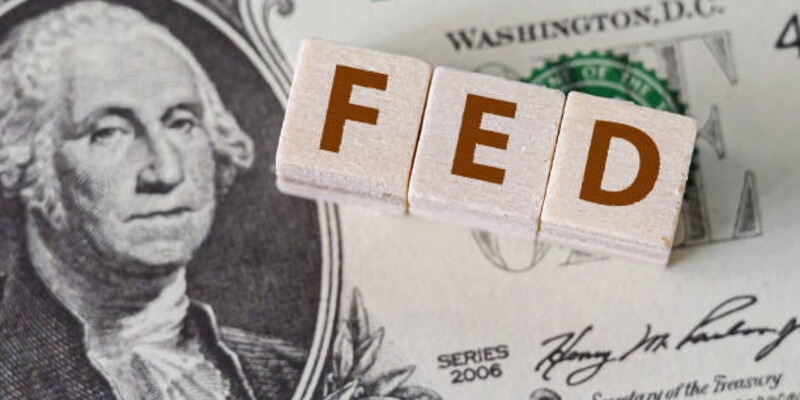The Role of the Fed in Shaping the Financial Landscape: Stocks, Crypto, and More
Susan Kelly
Jan 20, 2024
The landscape of the financial markets is increasingly complex and constantly adapting to new challenges. With a dizzying array of interactive forces in play, it’s often easy to forget about one of the most powerful and influential players: the Federal Reserve (or “the Fed”). The actions taken by this critical arm of the United States government can have far-reaching implications across a vast spectrum of interests, from stocks and real estate, to cryptocurrency markets and beyond. In this blog post we'll take an in-depth look at what role exactly the Fed plays in all these different sectors - so let's dive right in!
Overview of the Federal Reserve and its role in the US Financial Landscape

The Federal Reserve not only plays a key role in the American financial landscape but also has a significant impact worldwide. The central banking system was created in 1913 and has since been responsible for ensuring the stability and growth of the US economy through various monetary policies and operations. From regulating the money supply to controlling interest rates, the Federal Reserve's actions affect everything from inflation rates to the cost of borrowing for businesses and consumers.
In short, the Fed's decisions affect the livelihoods of millions of Americans and impact the global financial ecosystem. Despite its often-criticized actions, many economists and analysts regard the Fed as a necessary and critical institution for the health and prosperity of the US economy.
Impact of Fed activity on Stock Markets:
The stock market is a curious and complex creature, driven by a multitude of factors that can seem almost inscrutable at times. One such factor is the activity of the Federal Reserve, also known as the "Fed". But the Fed's actions can also have a ripple effect on the stock market, influencing investor confidence, interest rates, and other key variables.
For investors and traders alike, keeping a close eye on the Fed's activities can be an important part of staying ahead of the curve in this ever-shifting landscape.
How Government Policies can Affect Cryptocurrency Prices?
In recent years, cryptocurrency has been gaining more and more attention as an alternative investment option. However, many cryptocurrency investors are beginning to realize that the prices of cryptocurrencies can be affected by government policies. For example, when China banned initial coin offerings in 2017, cryptocurrency prices took a sharp dip. Similarly, when the United States Securities and Exchange Commission launched a crackdown on fraudulent cryptocurrency investments, prices also fell.
On the other hand, some countries are choosing to regulate and even embrace cryptocurrencies, which can have a positive effect on prices. As the prominence of cryptocurrency continues to grow, it is important for investors to stay informed on government policies that can impact the market.
Analyzing the Impact of Interest Rate Changes on Housing and other Real Estate Investments:
The housing market has always been influenced by a variety of economic factors, but none are quite as impactful as changes to interest rates. When interest rates increase, buyers who were previously in the market may find themselves priced out, while sellers may struggle to find willing buyers. Likewise, when interest rates decrease, more people may be able to afford to purchase homes, leading to an increase in demand. Of course, the impact of interest rates goes far beyond the housing market.
Real estate investments of all kinds can be influenced by changes to interest rates, particularly for investors who use leverage to finance their purchases. All in all, understanding and analyzing the impact of interest rate changes on real estate investments is crucial for anyone looking to make savvy financial decisions.
How the US dollar affects International Currencies and Markets?
The US dollar, often referred to as the world's reserve currency, wields enormous influence on global economies and financial markets. The value of the dollar impacts the prices of commodities, exchange rates, and interest rates worldwide. Changes in the dollar's value can have ripple effects on trade, investment, and even geopolitical power dynamics. The dollar's stability and strength act as a benchmark for other currencies, and countries often base their foreign policy decisions around it.
Understanding the intricate relationship between the US dollar and the global economy is crucial for anyone who wants to stay informed on international finance.
Strategies to Prepare for Potential Future Changes in Policy or Market Volatility:

The business world is ever-changing and it's important to be prepared for whatever comes your way. This rings especially true for potential policy changes or market volatility that could shake things up. One effective strategy is to diversify your investments across different industries or regions. This way, if one area experiences a downturn, your portfolio is not solely reliant on that sector.
It's also important to regularly review and adjust your financial plans based on current events and market trends. Staying informed and seeking professional advice can help you make informed decisions. By keeping an open mind and staying adaptable, you can feel confident in your ability to navigate any potential challenges that may arise.
Conclusion:
The Federal Reserve plays a critical role in the US financial landscape, and its actions have far-reaching impacts on all aspects of the economy, from stock markets to cryptocurrency and even international currencies. By understanding the current state of play, investors can better position themselves for any future changes or volatility in the system, whether due to policy shifts, economic trends, or other factors. Taking a proactive approach goes beyond traditional investments like stocks and bonds, into assets such as gold or real estate that may be less impacted by volatility due to pricing differences relative to stocks.
FAQs:
Q: What is the Federal Reserve?
A: The Federal Reserve, also known as the "Fed", is a central banking system in the United States that oversees monetary policy and regulates financial institutions. It's responsible for setting interest rates, managing currency circulation, and regulating certain aspects of the US economy.
Q: How does the Fed impact stock prices?
A: The Fed's actions can have a significant impact on stock markets. For example, when the Fed raises interest rates, investors may become more cautious and pull back on investments, resulting in lower stock prices. Conversely, when the Fed lowers interest rates, it signals confidence in the economy which can result in higher investor demand and thus higher stock prices.







